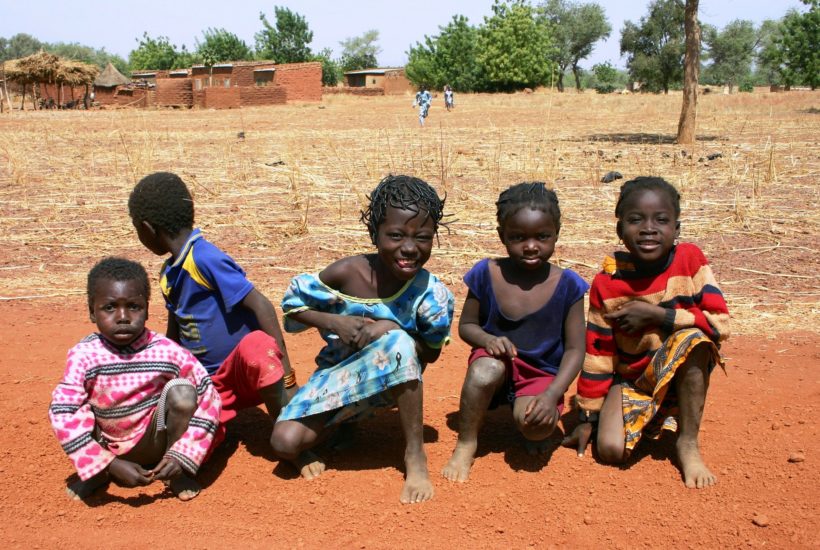Africa
Center Forge-Afrique draws attention to the economic consequences of the COVID-19 crisis
Renowned professors at African universities held a press conference on Friday, April 24th, 2020. The conference focused on the impact of COVID-19 on the economy of Burkina Faso. This crisis could result in a significant drop in the growth rate of 1.38%. The public deficit could reach -4.53% to -6.12% of GDP. Sectoral exports could reach -10% for mining products and -16% for cash crop products.

According to a study by professors Idrissa Ouédraogo, director of the doctoral school of the University Aube Nouvelle, and principal lecturer; Dr. Somlanaré Romuald Kinda, teacher-researcher at the University Ouaga 2, and Dr. Patrice Rélouendé Zidouemba, teacher-researcher at the University Nazi-Boni of Bobo-Dioulasso, COVID-19 is keeping the economy of Burkina Faso in suspense.
Find out more about the problems facing Burkina Faso and the economic challenges caused by the COVID-19, with our companion app, Born2Invest. Read the most important economic news from around the world with the best online aggregator.
The results of their study were presented to the press on April 24th, 2020
At the macroeconomic level, the Covid-19 crisis could lead to a loss of national wealth, ranging from $570 million to $1 billion (345 billion to 645 billion CFA francs). Indeed, this crisis could result in a significant drop in the growth rate of 1.38%, against a projected growth of 6.5%; and then an economic recession with a rate of -1.75%. The public deficit, for its part, could reach -4.53% to -6.12% of GDP, against a forecast deficit, due to the decline in economic activity.
At the sectoral level, the industrial and service sectors could be the most affected. The two are followed by the agricultural sector, which is also feeling the full impact of the crisis. Generally speaking, sectoral production could experience a significant drop of between -3% and -13%, depending on the sector.
Burkina Faso also risks seeing a large part of its export earnings collapse
Indeed, the professors said that sectoral exports could reach -10% for mining products and -16% for cash crop products, due to the fall in sectoral production and the contraction of global demand. Some enterprises will be forced to release a significant part of their employees to survive the crisis, particularly those in the informal sector. They thus note that the rise in unemployment could be between 1.93% and 5.92%. Household purchasing power will be sharply deteriorated for all socio-professional categories.
These results of Forge-Afrique’s research indicate significant impacts, both at the macroeconomic and sectoral levels, and on the well-being of agents. The speakers specified the following: “In conducting this research, the authors seek not to alarm, but to draw attention to the fact that the phenomenon that currently affects us is quite serious in its consequences. After the health consequences, a socio-economic disaster could follow, if the authorities do not adopt in time the adequate measures to recover the national economy.”
The measures taken so far by the Government are not enough
The measures already taken and the budget allocations suggest that this is a management of short-term effects. However, the long-term effects will be by far the most important. They propose to reflect on a global, structuring, and endogenous strategy for economic recovery, which will be based on the country’s internal capacities and on the actual and real needs of agents. Indeed, Burkina Faso will have to rely on its own strengths.
For Professor Idrissa Ouédraogo, the technical and financial partners the country could count on are concerned about managing their own fate. Indeed, he said, the partner on which Burkina Faso relies most, which is the European Union, has resolved to offer $3 billion. This shows the need to restructure the Burkinabe economy. To undertake stimulus measures on both the demand and supply sides; to support households, especially the most vulnerable, and to specifically support companies and sectors in difficulty.
“In addition to these specific actions, some of which are already being implemented, it is important to focus on restructuring the country’s productive apparatus to make it a production system dedicated to satisfying domestic demand and which is mainly based on local raw materials,” the researchers concluded.
The Training, Guidance, and Research Center for Economic Governance in Africa (Forge-Afrique) is a center dedicated to research and analytical and theoretical treatment of national and international economic problems and facts.
The objective is to stimulate contradictory debates on themes of proven interest and topicality. This makes it a center at the service of political decision-makers, local authorities, civil society organizations, businesses, and citizens.
__
(Featured image by RobertoVi via Pixabay)
DISCLAIMER: This article was written by a third party contributor and does not reflect the opinion of Born2Invest, its management, staff or its associates. Please review our disclaimer for more information.
This article may include forward-looking statements. These forward-looking statements generally are identified by the words “believe,” “project,” “estimate,” “become,” “plan,” “will,” and similar expressions. These forward-looking statements involve known and unknown risks as well as uncertainties, including those discussed in the following cautionary statements and elsewhere in this article and on this site. Although the Company may believe that its expectations are based on reasonable assumptions, the actual results that the Company may achieve may differ materially from any forward-looking statements, which reflect the opinions of the management of the Company only as of the date hereof. Additionally, please make sure to read these important disclosures.
First published in lefaso.net, a third-party contributor translated and adapted the article from the original. In case of discrepancy, the original will prevail.
Although we made reasonable efforts to provide accurate translations, some parts may be incorrect. Born2Invest assumes no responsibility for errors, omissions or ambiguities in the translations provided on this website. Any person or entity relying on translated content does so at their own risk. Born2Invest is not responsible for losses caused by such reliance on the accuracy or reliability of translated information. If you wish to report an error or inaccuracy in the translation, we encourage you to contact us.

-

 Crowdfunding6 days ago
Crowdfunding6 days agoPMG Empowers Italian SMEs with Performance Marketing and Investor-Friendly Crowdfunding
-

 Fintech2 weeks ago
Fintech2 weeks agoRobinhood Expands to Europe with Tokenized Stocks and Perpetual Futures
-

 Markets1 day ago
Markets1 day agoMarkets Wobble After Highs as Tariffs Rise and Commodities Soar
-

 Markets1 week ago
Markets1 week agoThe Big Beautiful Bill: Market Highs Mask Debt and Divergence

























